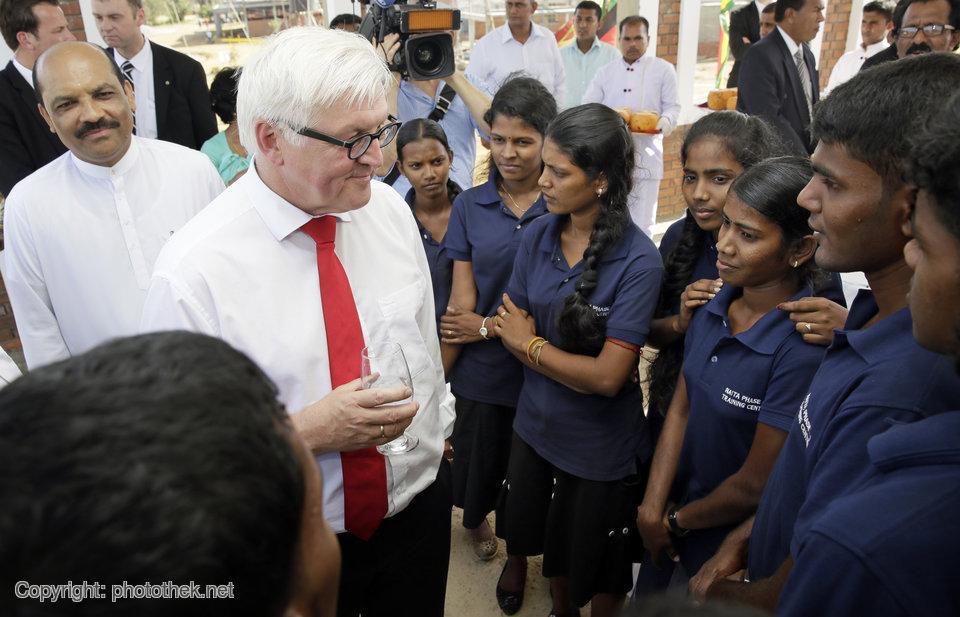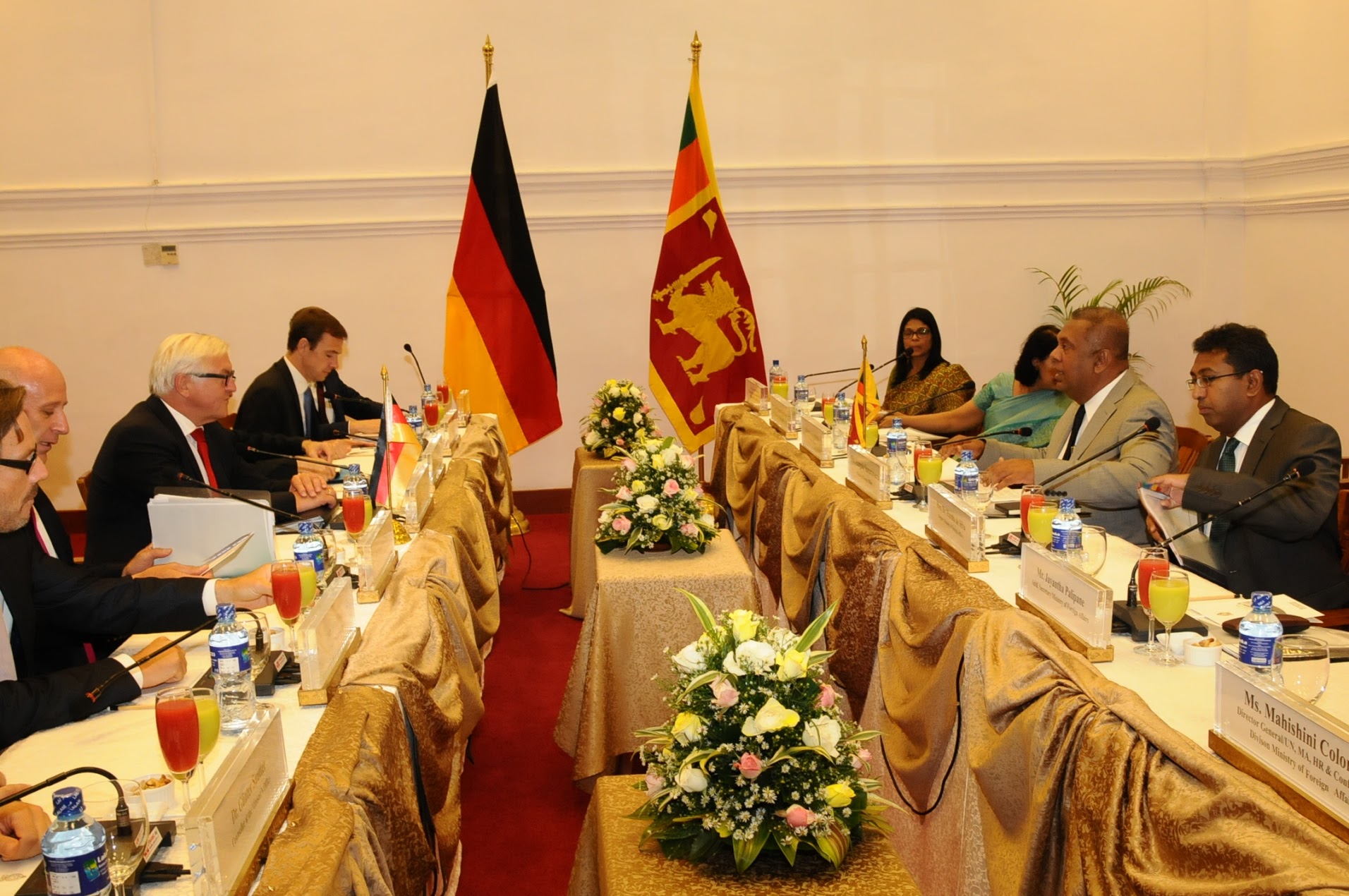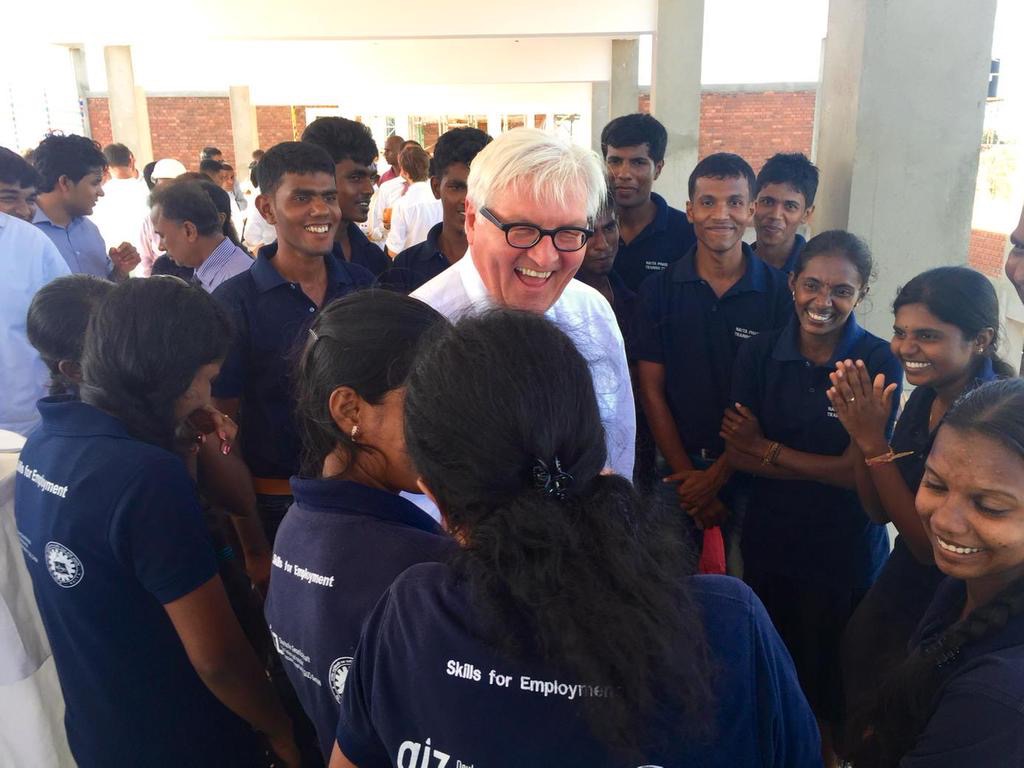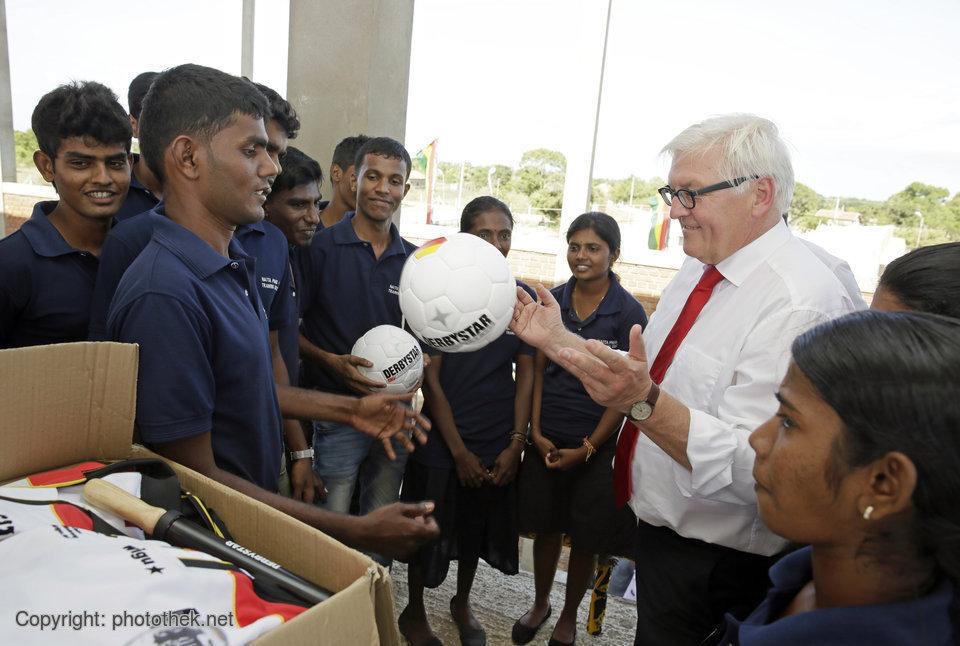 |
|
Foreign Minister Frank-Walter Steinmeier with Tamil youths in Kilinochchi, at the opening of a German-funded training institute (Photo: Photothek.net) |
German Foreign Minister Frank-Walter Steinmeier stressed the need for international involvement in Sri Lanka’s process for accountability, during his visit to Colombo.
Speaking at a press conference alongside Sri Lanka’s Foreign minister Mangala Samaraweera, Mr Steinmeier said Germany was ready to share its experiences in the matter of reconciliation and justice, if it was desired by Sri Lanka.
“Unfortunately a global model [for justice and reconciliation] which fits all circumstances does not exist. Dealing with the past is necessary, reconciliation difficult and in many cases quite painful,” the foreign minister said.
“Elements that belong to it include, truth finding, justice, reparations and of course, guarantee of non-recurrence.”
 |
Mr Steinmeier said Germany was pleased at the peaceful change in government but stressed that the new regime now had to act.
Responding to a question on the hybrid accountability mechanism recommended by the UN High Commissioner for Human Rights, Zeid Ra’ad al Hussain, the minister said a special court to deal with the issue was discussed with Mr Samaraweera earlier in the morning.
He pointed out that as Germany holds the chairmanship of the Human Rights Council, it was its role to build consensus around a resolution. Stating that he understands that the process should be and will remain, to a possibly large extent, domestic, as the internationalisation of the entire mechanism is a sensitive topic in Sri Lanka, Mr Steinmeier stressed the necessity of international support and assistance. To what extent this international support will go, will become clear as current proceedings in the Human Rights Council continue, he said.
Mr Samaraweera said Sri Lanka had already indicated that it would welcome international assistance.
“The form and shape of such assistance is what needs to be discussed and finalised and this would be done after consultations which we hope to commence in mid-october with all the stakeholders.”
Speaking on discussions that were held, Mr Steinmeier said Germany was not only obligated to further economic cooperation with Sri Lanka, but that it also attempts to contribute to the development of the younger generation, highlighting the building of a German-funded vocational training institute in Kilinochchi, which he travelled to later in the day.
 |
|
(Photo: @arndhenze) |
 |
|
(Phptp: Phototek.net) |
Mr Samaraweera said the countries had agreed to prioritise closer economic cooperation.
“Germany is Sri Lanka’s fifth largest export market, accounting for nearly five percent of our exports. Last year our total exports were US$ 824 million and our target is for trade turnover to cross the US$ 1 billion mark within the next few years,” he pointed out.
The German foreign minister also met with President Maithripala Sirisena, Prime Minister Ranil Wickremesinghe and TNA leader R Sampanthan today.
We need your support
Sri Lanka is one of the most dangerous places in the world to be a journalist. Tamil journalists are particularly at threat, with at least 41 media workers known to have been killed by the Sri Lankan state or its paramilitaries during and after the armed conflict.
Despite the risks, our team on the ground remain committed to providing detailed and accurate reporting of developments in the Tamil homeland, across the island and around the world, as well as providing expert analysis and insight from the Tamil point of view
We need your support in keeping our journalism going. Support our work today.
For more ways to donate visit https://donate.tamilguardian.com.

